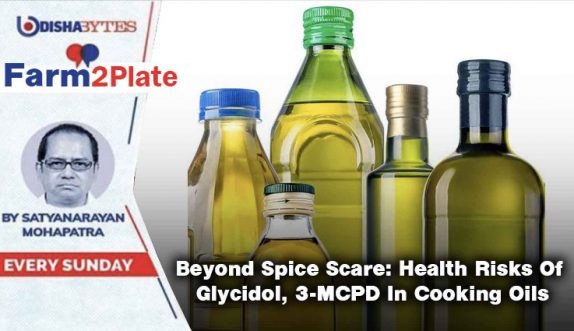The recent recall of spice mixes of major brands like Everest and MDH due to ethylene oxide contamination has rightly triggered public alarm. However, as a food safety professional, I want to draw your attention to a lesser-known but equally concerning issue: Presence of glycidol esters (GE) and 3-monochloropropane-1,2-diol (3-MCPD) in cooking oils. These contaminants, often overlooked, pose potential health risks, particularly for vulnerable groups like children and the elderly.
GE and 3-MCPD are process contaminants formed during refining of edible oils. They are predominantly found in refined palm oil and other oils like olive, coconut, and sunflower. Codex Alimentarius Commission (CODEX), an international food standards body, classifies these substances as potential carcinogens.

The dangers of GE and 3-MCPD lie in their breakdown products, glycidol and 3-MCPD. Glycidol, a genotoxic carcinogen, can damage our DNA, the genetic blueprint of our cells, potentially leading to cancer. Studies on 3-MCPD have raised concerns about its impact on kidney function and reproductive health, particularly in animal models.
While the exact risks to humans are still being researched, European Food Safety Authority (EFSA) has expressed concern over the potential harm, especially for children and high consumers of these oils. Children, with their developing bodies, are particularly vulnerable to the adverse effects of toxins. Similarly, the elderly, often with compromised health, may be more.
















